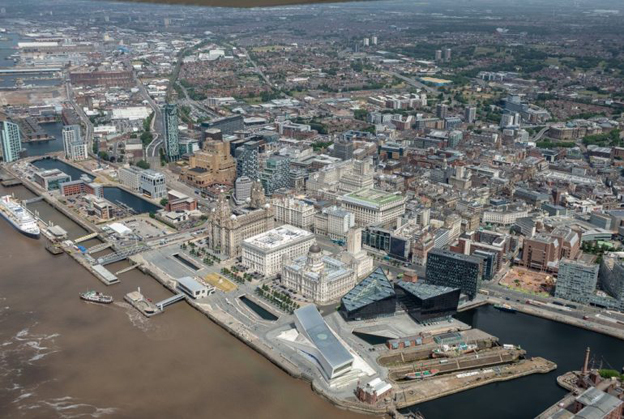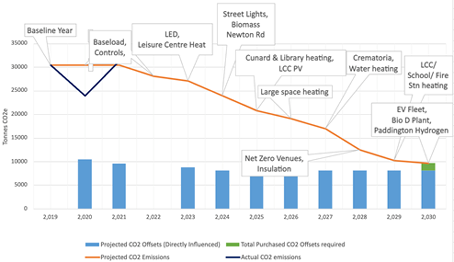
In 2019 Liverpool City Council declared that planet Earth is facing a climate change emergency.
All political parties within the city agreed to work together to rise to the challenge of an impending ecological disaster by making Liverpool a Net Zero Carbon city by 2030.
Liverpool's net zero carbon goal
A 2030 Net Zero Liverpool Action Plan sets out the actions that Liverpool can take to become a net zero city in 2030. It is a hugely challenging target, but one that can bring many benefits.
A 2030 Net Zero Liverpool is a thriving, fair and sustainable city. Climate action will have stimulated the local green economy and placed Liverpool at the forefront of new industries which will form the backbone of our future economy.
The city will have also stopped all contributions to climate change and have demonstrated leadership to other cities in the UK and globally. The city will also be more resilient to the climate changes we are already experiencing. See the full the plan and it's appendices below.
Citywide impacts
It is estimated Liverpool has already cut 840,000 tonnes of CO2 from the atmosphere since 2005 and has planted more half a million trees in the past 25 years.
Liverpool City Council (LCC) is delivering the Sustainable Warmth Fund grant. The grant is available to help 700 households across Liverpool. It can be used to install a number of insulation and energy measures to residential homes. Some of these measures may include cavity wall insulation, loft insulation, under floor insulation, air source heat pumps, solar panels and replacement windows and doors.
Council impacts
LCC has secured a fixed rate green energy tariff from 2023 and is buying the renewables guarantees of origin to offset electricity impacts. It has also submitted a £9M bid to decarbonise four leisure centres using heat exchange technology and PV solar.
Decarbonisation surveys are underway for libraries, St George's Hall, the Town Hall and Milstead SEN School to design and seek funding on site energy reduction and heating system replacement with a zero carbon option.
LCC has appointed a new sustainability team and work is underway in developing a Net Zero Carbon Plan to achieve complete decarbonisation of all LCC’s direct and indirect emissions from building occupation, service delivery and transport across LCC, Merseyside Fire and Rescue Service and Liverpool's schools.
The Net Zero Plan sets out a strategy to achieve Net Zero by 2030 by reducing energy consumption by up to 60%, replace gas heating and hot water with low carbon and renewable technologies, and offset any remaining usage with verifiable reductions caused by LCC’s policies, controls and delivery such as staff commuting controls and incentives, large scale tree planting.
Liverpool City Council Total CO2 Emissions Glidepath to 2030

Transport initiatives
LCC has recently installed a further 6km of segregated cycle lane, and a fleet of electric and hydrogen powered buses and as your local authority, with responsibility for Public Health, the Council are also developing complementary clean air and active travel strategies.
KeyFacts Energy News: Energy Transition
 KEYFACT Energy
KEYFACT Energy